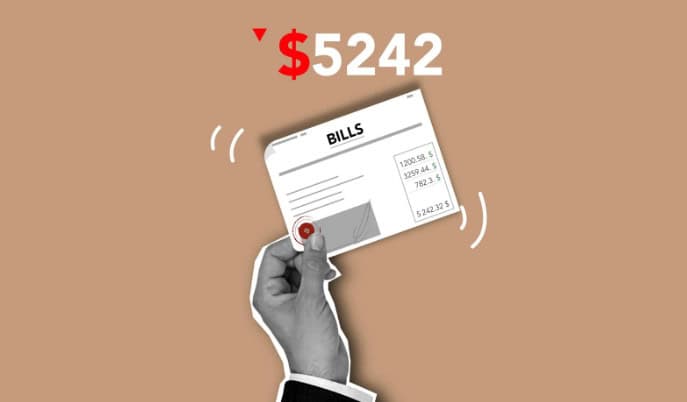Understanding sales tax laws by state is essential for businesses and consumers alike. With each state having its own set of regulations, navigating through them can be complex and time-consuming.
Table of Contents
This comprehensive guide aims to shed light on sales tax laws across various states in the United States, providing crucial insights into exemptions, rates, and compliance requirements.
The guide also includes tips on how to stay updated with changes in the law, advice on managing audits, and best practices for ensuring compliance. By familiarizing yourself with these regulations, you can avoid costly mistakes and ensure smooth business operations.

The Basics of Sales Tax
A sales tax is a consumption tax imposed on the sale of goods and services, typically calculated as a percentage of the selling price. While the federal government does not impose a nationwide sales tax, each state has the authority to levy its own, leading to a diversity of tax rates and regulations across the country.
Additionally, local governments, such as counties and cities, may impose additional sales taxes, further complicating the landscape for consumers and businesses alike.
For example, a product sold in one state might be subject to a state sales tax rate of 6%, but in another state, the combined state and local sales tax rate might be as high as 10%.
Understanding which transactions are subject to sales tax, the applicable rates, and any exemptions is fundamental for businesses to remain compliant and avoid penalties.
This complexity necessitates that businesses stay informed about changes in tax laws and regulations in the jurisdictions where they operate to ensure accurate tax collection and remittance.

Variations in Rates
One of the most significant challenges in navigating sales tax laws is the variation in rates across different states and local jurisdictions. While some states have a single, uniform rate statewide, others allow local governments to set their own rates, leading to a patchwork of rates within the same state.
For example, in California, the statewide sales tax rate is 7.25%, but local jurisdictions can impose additional taxes, resulting in rates as high as 10.25% in some areas. This variation can create confusion and additional administrative burdens for businesses, especially those operating in multiple locations.
Companies must stay vigilant about changing rates and requirements to ensure compliance and avoid penalties. Moreover, the complexity is compounded by occasional special district taxes or temporary tax changes, which can further complicate the landscape.
Exemptions and Exceptions
While most goods and services are subject to sales tax, there are numerous exemptions and exceptions that vary from state to state. These exemptions may apply to specific types of transactions, such as groceries, prescription drugs, or clothing, or they may be targeted towards certain industries or activities.
Understanding these exemptions is crucial for businesses to avoid overpaying taxes and for consumers to know when they may be eligible for a tax break.
For example, in Illinois, businesses and consumers alike can benefit from the Illinois sales tax exemption, which covers a wide range of goods and services outlined by the state tax authorities.
It’s essential to consult official resources or seek professional advice to ensure compliance with these exemptions and take advantage of potential tax savings.
Compliance and Enforcement
Compliance with sales tax laws is a legal obligation for businesses selling taxable goods or services. This includes registering for a sales tax permit, collecting the appropriate tax from customers, and remitting it to the appropriate tax authority on a regular basis.
Additionally, businesses must keep accurate records of all transactions and sales tax collected, often requiring detailed documentation and periodic audits to ensure compliance.
Failure to comply with these requirements can result in severe penalties, including fines, interest on unpaid taxes, and legal action that could jeopardize the business’s operations.
Therefore, businesses must stay informed about their obligations, remain updated on changes in tax laws, and ensure they have robust systems in place to accurately track and report sales tax liabilities.
Investing in reliable accounting software or consulting with a tax professional can help mitigate risks and ensure ongoing compliance.
Technology and Automation
Advancements in technology have fundamentally transformed the way businesses manage sales tax compliance. Automated software solutions can now streamline the entire process of calculating, collecting, and remitting sales tax, significantly reducing the risk of errors and ensuring timely compliance.
These sophisticated tools not only handle complex tax calculations but also generate detailed reports and notifications, which can aid in audit preparation and financial planning.
Moreover, these solutions can help businesses stay up-to-date with changes in tax rates and regulations, minimizing the burden of manual research and administration.
By automatically updating tax rules and rates based on the latest legislative changes, these systems ensure that businesses remain compliant without the need for constant manual intervention.
This not only saves time but also provides peace of mind, allowing businesses to focus more on their core operations and strategic growth initiatives.
Interstate Sales
With the rise of e-commerce, the issue of sales tax on interstate transactions has become increasingly complex and challenging for businesses.
The Supreme Court’s landmark decision in South Dakota v. Wayfair, Inc. (2018) fundamentally changed the landscape by allowing states to impose sales tax obligations on out-of-state sellers based on economic nexus, regardless of physical presence.
Before this ruling, businesses only needed to collect sales tax if they had a physical presence in the state. This decision now compels businesses to navigate a patchwork of state tax laws and thresholds, making compliance more burdensome and intricate.
The ruling has significant implications for businesses engaged in online sales, necessitating meticulous monitoring of their sales activities across multiple states and ensuring adherence to varying tax regulations.
Failing to comply can lead to hefty penalties and legal challenges, underscoring the importance of robust tax management practices in the digital economy.
Resources for Businesses
Navigating sales tax laws can be daunting, but there are numerous resources available to help businesses stay informed and compliant. State tax authorities typically provide guidance documents, webinars, and helplines to assist businesses with understanding their obligations.
These resources are often updated regularly to reflect changes in legislation and can be invaluable for staying current. Additionally, professional tax advisors and software providers offer specialized expertise and tools tailored to the needs of businesses of all sizes.
These advisors can provide personalized consultations to address specific concerns and ensure accurate tax filings, while advanced software solutions can automate many aspects of sales tax management, reducing the risk of errors and saving time.
By leveraging these resources, businesses can navigate the complexities of sales tax laws more effectively, allowing them to focus on their core operations and growth.
Consumer Considerations
While businesses bear the primary responsibility for collecting and remitting sales tax, consumers should also be aware of their obligations. In some cases, such as when purchasing goods online from out-of-state sellers, consumers may be required to self-report and remit use tax on their purchases.
This tax is intended to level the playing field between in-state and out-of-state sellers, ensuring that local businesses are not disadvantaged.
Understanding when and how to pay use tax, including the documentation and deadlines involved, can help consumers avoid penalties and contribute to the funding of essential public services like education, infrastructure, and public safety.
By staying informed about their tax responsibilities, consumers can play a vital role in supporting their communities.

Navigating sales tax laws by state is a complex but necessary endeavor for businesses and consumers alike. The intricacies of these laws can vary significantly from one state to another, making it crucial to understand the specific requirements in each jurisdiction.
From understanding the basics of sales tax, such as what goods and services are taxable, to staying compliant with ever-changing regulations and filing deadlines, there are numerous factors to consider. Additionally, businesses must be aware of the implications of interstate commerce and how it affects their tax obligations.
Sales Tax Laws by State – FAQs
Q1: What is the difference between sales tax and use tax?
A: Sales tax is collected by the seller at the point of sale and is automatically included in the purchase price of taxable goods or services.
Use tax, on the other hand, is self-reported by the consumer for items purchased tax-free that are used or consumed in their state. It ensures that sales tax revenue is collected when goods are bought out-of-state but used locally.
Q2: How often do businesses need to file sales tax returns?
A: The frequency of sales tax returns varies by state and can depend on the volume of sales a business has.
Some states require monthly filings, while others may require quarterly or annual filings. Businesses need to verify the filing requirements in each state where they operate to ensure compliance.
Q3: Are digital goods and services subject to sales tax?
A: The taxation of digital goods and services varies widely by state.
Some states tax digital downloads and streaming services, while others do not. Businesses that sell digital products should consult the specific tax regulations of each state to determine their obligations.
Q4: How can I stay informed about changes in sales tax laws?
A: Businesses can stay updated on sales tax changes by subscribing to updates from state tax authorities, attending webinars and industry conferences, using automated sales tax software that provides real-time updates, and consulting with professional tax advisors who specialize in sales tax compliance.
Q5: What are the penalties for failing to comply with sales tax regulations?
A: Penalties for non-compliance can include fines, interest on unpaid taxes, and even legal action.
The severity of the penalties often depends on the amount of tax owed and the duration of non-compliance. Maintaining accurate records and following proper procedures can help businesses avoid these costly penalties.



